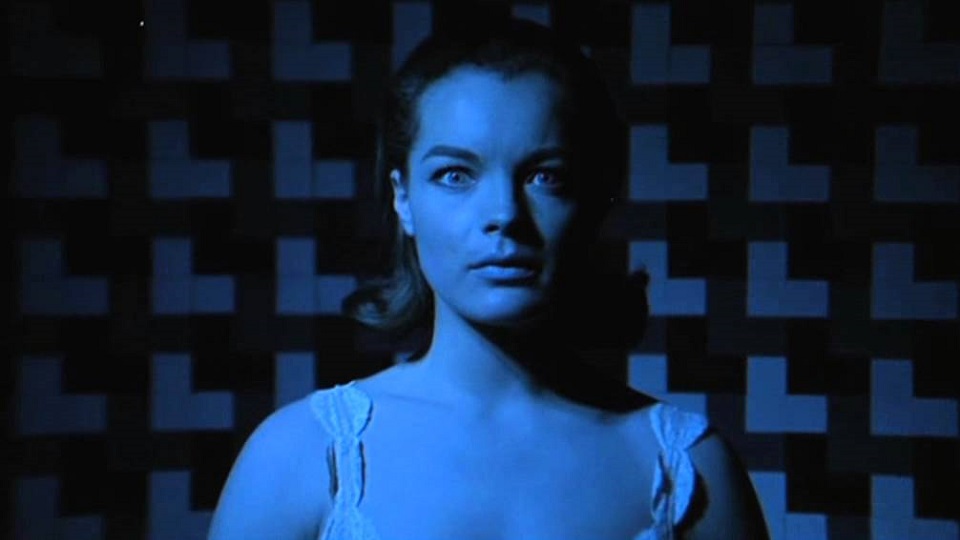Available on Blu-ray Mon 5 Feb 2018
There’s a human fascination with the levels some people will go to achieve their vision. There’s something genuinely admirable about a magnificent folly whether they’re seen through to the end or finally abandoned. Cinema is littered with such relics, the success or failure of which colouring our opinion of the sanity of their instigator. For every Herzog or Coppola, there’s a Gilliam or a Jodorowsky. An instance of failure less-well known in Hollywood is that of the celebrated French filmmaker Henri-Georges Clouzot (Les Diaboliques, The Wages of Fear). Over three mad weeks in 1964 Clouzot, granted an almost unlimited budget, worked with three crews and 150 technicians to make his film L’Enfer. Amidst disputes with actors, a record heatwave, problems with locations and ill-health, the project was halted.
Four decades later director Serge Bromberg chanced Clouzot’s widow Inès de Gonzalez while stuck in a lift. She granted him access to the 185 reels (fifteen hours) of film that were still in existence. Utilising this extraordinary footage, talking heads with some of the surviving crew, and additional dramatisation the screenplay he has pieced together an evocative, engrossing depiction of both the film-making process, and a refutation of the director as tyrant-genius.
What can’t be argued with is Clouzot’s ambition and his meticulous attention-to-detail. he subjected his stars (including Romy Schneider, Serge Reggiani, and Dany Carrel) to endless tests in which he played with light, shadow and colours to evoke fear madness (although he came closer to the now classically groovy 60’s psychedelia). He played with tinted lenses, the reversal of his colour stock, and all manner of visual trickery. Some of the shots are still incredible, such as Schneider water-skiing, and a languid tracking shot through a picturesque seaside resort as a jealous Reggiani follows his wife. What we don’t get however, is a real feel for how the film would have panned out. There are snatches of mood and atmosphere, but inevitably we’re lacking the overall thumbprint of the man himself. Bromberg has done a more than admirable job of piecing together something coherent, but inevitably the breaks for interviews, and the stagey but well-performed script recitals slow things down somewhat even as they increase our understanding.
That said, it’s never less than fascinating – and it makes you marvel that any film ever makes it through the creative and commercial mire to emerge blinking into the light of a projector. It certainly raises the appreciation for those that do, especially when they turn out to be magical. In the case of L’Enfer, we may have been robbed of a crazy masterpiece – we shall never know – but there is always a place for these kind of futile endeavours. They can inspire as well as caution.
